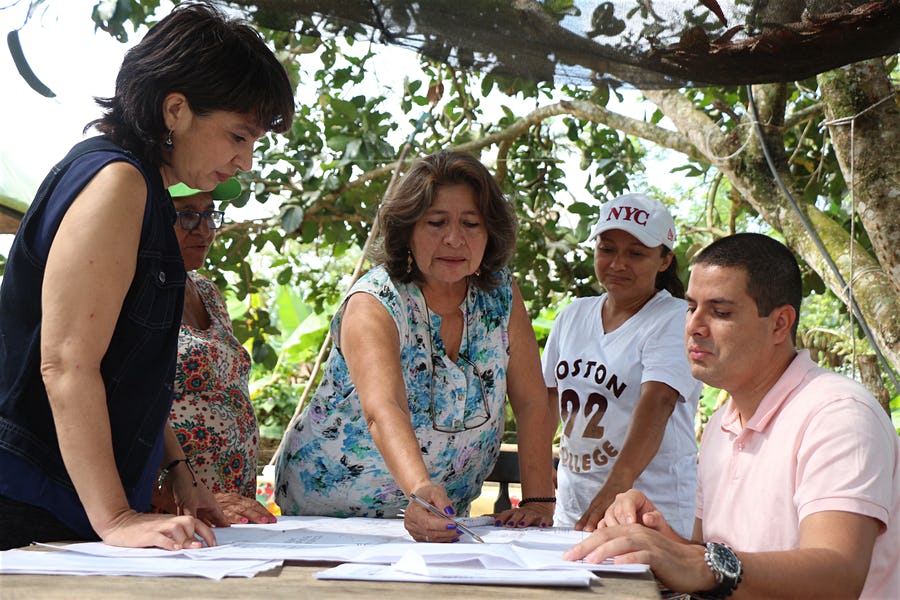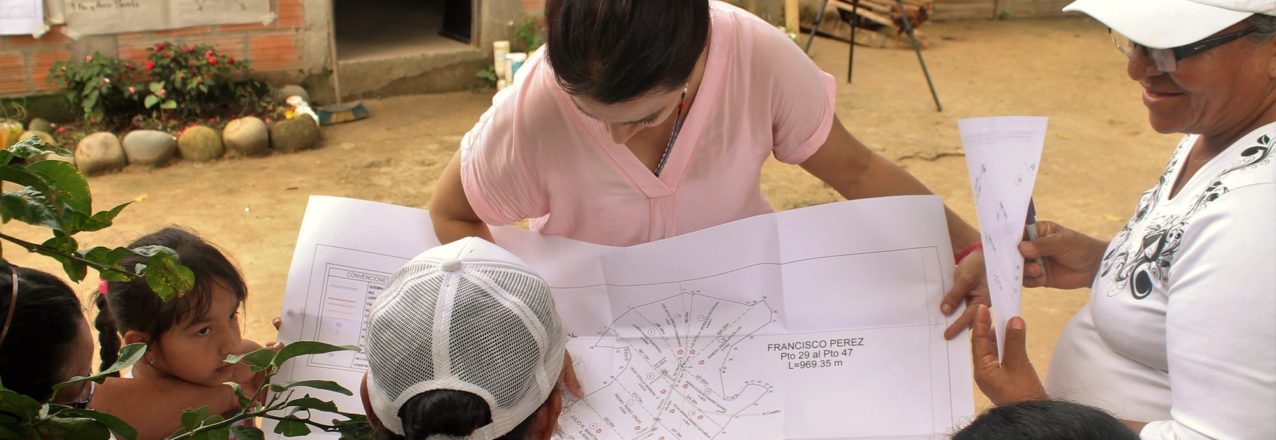By Land and Rural Development Program in Colombia
 Discussions about land tenure in development aid often end up like this: a question mark whether land titles are enough to alleviate poverty. Property titles—people tend to argue—provide landowners with an asset, which can be used as collateral to access credit and create capital to improve productivity and adopt new technologies. But are they enough to lift families out of poverty?
Discussions about land tenure in development aid often end up like this: a question mark whether land titles are enough to alleviate poverty. Property titles—people tend to argue—provide landowners with an asset, which can be used as collateral to access credit and create capital to improve productivity and adopt new technologies. But are they enough to lift families out of poverty?
Experts say land titles strengthen the bond between farmers and land and create incentives to invest more in their patrimony, including their children’s future. Study after study demonstrates improvement in the factors that contribute to poverty, from reduced child labor to higher spending on education and food.
These studies are hard to dismiss, but the road to prosperity has many detours, especially for women.
In rural agriculture, ensuring land tenure for women is of particular relevance, especially where women are the main breadwinners or where antiquated land policies undermine women’s rights. The truth is that without investments in infrastructure, robust policies, and economic opportunities, a land title is little more than a small step up a big mountain.
Colombia is no stranger to the issues of land informality. A five-decade conflict often revolved around access to and the acquisition of land, and six of every 10 land parcels is informally owned. Indeed, the inequity and poverty born from the conflict led to land reform schemes that sought to go beyond “just a land title.”
For example, during several years, Colombia’s former land authority, INCODER, doled out more than 1,000 land tracts— each one known as a parcelación—to some 28,000 families. Each parcelación groups 20-plus families together and requires them to work together through a farmers’ association. The catch: they must manage their land under one land title. As one might expect, the attempt to ensure land tenure and create economic success fell short on both fronts.


